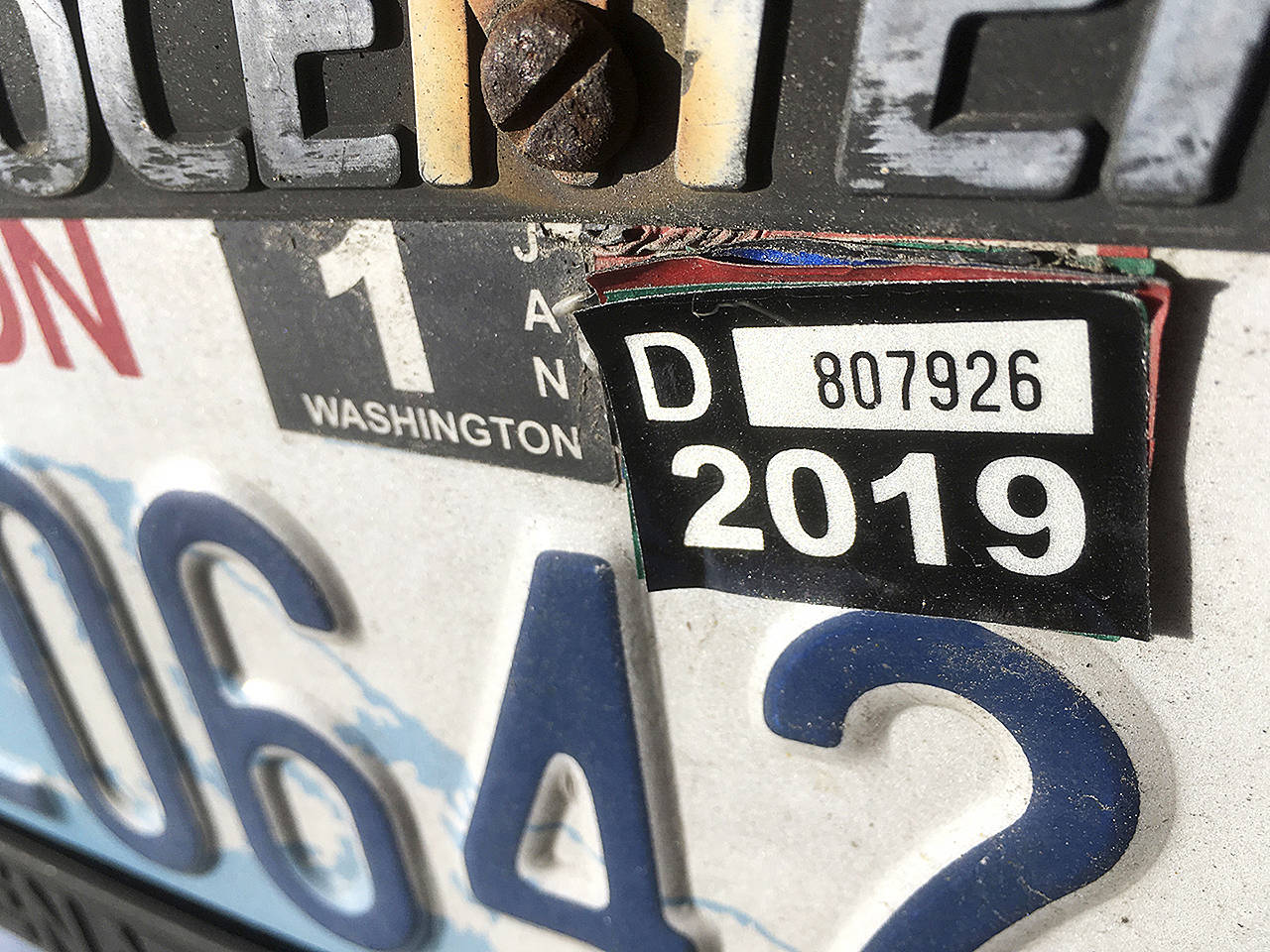OLYMPIA — The state Senate approved a bill early Thursday to trim Sound Transit car tab fees and keep the regional transit authority from losing out on hundreds of millions of dollars counted on for its voter-approved expansion plans.
Under the legislation, Sound Transit would start calculating a portion of vehicle license payments with a depreciation schedule that better reflects a car’s actual worth than an older schedule the agency now uses. Savings resulting from the change could range from a few dollars to more than $100, depending on a car’s value.
To offset some of the lost income, Sound Transit would be allowed to steer $518 million away from a special account for education-related uses and into projects in the $54 billion expansion approved by voters in 2016. The account is now empty but is expected to start filling next year.
Senate Bill 5955 passed 30-14 after supporters defeated amendments to prevent raiding of the account and to slash car tab tax rates deeper.
The bill will strike a balance between giving relief to car tab payers and ensuring Sound Transit can deliver the projects as promised to voters, supporters said.
“We must not forget there was a vote,” said Sen. Steve Hobbs, D-Lake Stevens, chairman of the Senate Transportation Committee, during the floor debate.
But Republican Sens. Steve O’Ban, of University Place, and Hans Zeiger, of Puyallup, said there’s too much help for Sound Transit and too little savings for taxpayers who feel the transit authority didn’t make clear in 2016 how much higher car tabs would rise.
“It’s a halfway measure. It does not go as far as my constituents want it to go,” Zeiger said. “People feel like they were misled and they did not have the full story when the vote was taken.”
Although the two senators voted for it — their districts are within Sound Transit boundaries — they were among a chorus of senators vowing to find ways of reducing the financial burden even more.
“This bill does not do enough,” said Sen. Curtis King, R-Yakima, the ranking Republican on the transportation committee. “This isn’t the end. It is just the beginning.”
The bill now goes to the House for consideration. It is not going to get a warm welcome. House Speaker Frank Chopp and other Democratic lawmakers oppose use of the Puget Sound Taxpayer Accountability Account to alleviate any financial effect on Sound Transit.
King County lawmakers pushed to create the account in 2015 as part of the statewide transportation package. The money is now supposed to be spent to “improve educational outcomes in early learning, K-12 and higher education,” with a focus on youths who are low-income, homeless or in foster care.
It will add up to $318 million for King County, $111 million for Pierce County and $89 million for Snohomish County.
Sen. David Frockt, D-Seattle, tried unsuccessfully to strip from the Senate bill language pertaining to the fund. In the end, he and two other Democratic senators from King County voted against the bill.
In January, the House passed a car tab relief bill but it never received a hearing in the Senate. That bill also required Sound Transit to change the way it values vehicles. It did not contain a means of offsetting the $780 million that Sound Transit officials say they would lose as a result.
Sound Transit 3 passed in November 2016 on the strength of support in Snohomish and King counties. Voters in Pierce County rejected it.
The plan calls for adding 62 miles of new Link light-rail line, including an extension to Everett Station by 2036, via the Paine Field industrial area. Other new light-rail destinations envisioned in ST3 include Tacoma, Ballard, West Seattle, downtown Redmond, south Kirkland and Issaquah.
To pay for the upgrades, the sales tax went up half a percent within the district. There’s also a new property tax assessment of 25 cents for each $1,000 of assessed valuation. And the tax rate for figuring car tab fees went from 0.3 percent to 1.1 percent, resulting in a near trebling of cost for some vehicle owners.
A contributing factor to the surge is Sound Transit’s use of a 1990s vehicle depreciation schedule in calibrating increases. That schedule overvalues vehicles, which means higher charges.
Under Senate Bill 5955, Sound Transit must use a depreciation schedule enacted in 2006 in its car tab calculations. As written, the newer schedule will only be applied to the 0.8 percent increase approved in 2016. The older schedule will continue to be used on the other 0.3 percent.
Once the switch is made, vehicle owners in the three-county transit district could wind up owing less. When their renewal notice arrives, it will show what their tabs would be under the old and new methods and if there’s a savings it will be treated as a credit.
The average reduction will vary. For example, the owner of a 2010 Nissan Altima would save $30 while the owner of a 2015 Acura RLX could save $140, based on an analysis by staff of the Senate Transportation Committee.
Jerry Cornfield: 360-352-8623; jcornfield @herald net.com. Twitter: @dospueblos.
Talk to us
> Give us your news tips.
> Send us a letter to the editor.
> More Herald contact information.

























